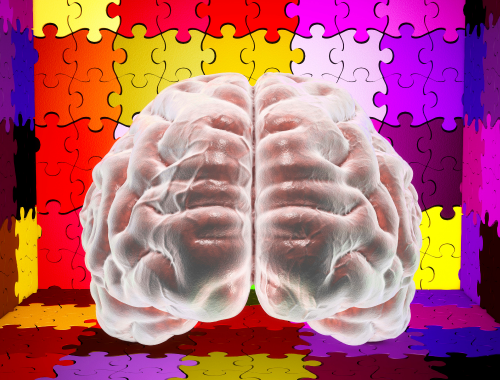Difference Between Mental Health Disorders and Neurodevelopmental Disorders
Mental health or behavioral disorders, also called mental illnesses, are conditions that disrupt the thoughts, moods, behavior, and emotions of a person. Neurodevelopmental disorders are conditions that affect the cognitive and behavioral development of a person, creating difficulties in the normal social, verbal, and emotional well-being of an individual.

What are mental health disorders?
Definition:
Mental health or behavioral disorders, also called mental illnesses, are conditions that disrupt the thoughts, moods, behavior, and emotions of a person.
Types:
Examples of mental health disorders include anxiety disorders, depression, bipolar and mood disorders, conduct disorders, personality disorders such as borderline personality disorder and antisocial personality disorder, eating disorder, obsessive-compulsive disorder (OCD), post-traumatic stress disorder (PTSD), schizophrenia, and substance use disorders.
Symptoms:
Symptoms of mental health disorders include avoiding social interaction, reduced sex drive, hallucinations, delusions, anxiety, excessive fear and worry, low mood, emotional lability, extreme sadness, extremes of mood, anger, obsessive thoughts, self-harm, and suicidal behavior.
Causes:
Causes of mental disorders include chronic alcohol or drug intake, extreme stress, lack of proper nutrition, isolation, traumatic fetal delivery, medical conditions such as diabetes, hypothyroidism, cancer, family history of mental disorders, traumatic brain injury, or history of abuse.
Treatment:
Treatment options for mental health disorders include cognitive behavioral therapy, medications such as anxiolytics, antidepressants, and antipsychotics, acupuncture, yoga, meditation, and brain stimulation therapies such as electroconvulsive therapy and transcranial magnetic stimulation.

What are Neurodevelopmental disorders?
Definition:
Neurodevelopmental disorders are conditions that affect the cognitive and behavioral development of a person, creating difficulties in the normal social, verbal, and emotional well-being of an individual.
Types:
Examples of neurodevelopmental disorders are Attention-deficit/hyperactive disorder (ADHD), autism spectrum disorder (ASD), cerebral palsy, learning disabilities, motor disorders, and conduct disorders.
Symptoms:
Neurodevelopmental disorders can cause impairments in the following domains in an individual: memory, communication, behavior, motor, social skills, learning, and emotions.
Causes:
The causes of neurodevelopmental disorders are not clear. However, the emergence of these disorders has been linked to risk factors such as genetics, diet, family environment, stress, physical illness, and trauma.
Treatment:
Neurodevelopmental disorders are hard to treat. Treatment choices for these conditions include cognitive behavioral therapy, psychotherapy, transcranial magnetic stimulation, and medications to deal with anxiety, agitation, and hyperactivity.
Difference between Mental health disorders and Neurodevelopmental disorders
Definition:
Mental health or behavioral disorders, also called mental illnesses, are conditions that disrupt the thoughts, moods, behavior, and emotions of a person. Neurodevelopmental disorders are conditions that affect the cognitive and behavioral development of a person, creating difficulties in the normal social, verbal, and emotional well-being of an individual.
Types:
Examples of mental health disorders include anxiety disorders, depression, bipolar and mood disorders, conduct disorders, personality disorders such as borderline personality disorder and antisocial personality disorder, eating disorder, obsessive-compulsive disorder (OCD), post-traumatic stress disorder (PTSD), schizophrenia, and substance use disorders.
Examples of neurodevelopmental disorders are Attention-deficit/hyperactive disorder (ADHD), autism spectrum disorder (ASD), cerebral palsy, learning disabilities, motor disorders, and conduct disorders.
Symptoms:
Symptoms of mental health disorders include avoiding social interaction, reduced sex drive, hallucinations, delusions, anxiety, excessive fear and worry, low mood, emotional lability, extreme sadness, extremes of mood, anger, obsessive thoughts, self-harm, and suicidal behavior.
Neurodevelopmental disorders can cause impairments in the following domains in an individual: memory, communication, behavior, motor, social skills, learning, and emotions.
Causes:
Causes of mental disorders include chronic alcohol or drug intake, extreme stress, lack of proper nutrition, isolation, traumatic fetal delivery, medical conditions such as diabetes, hypothyroidism, cancer, family history of mental disorders, traumatic brain injury, or history of abuse.
The causes of neurodevelopmental disorders are not clear. However, the emergence of these disorders has been linked to risk factors such as genetics, diet, family environment, stress, physical illness, and trauma.
Treatment:
Treatment options for mental health disorders include cognitive behavioral therapy, medications such as anxiolytics, antidepressants, and antipsychotics, acupuncture, yoga, meditation, and brain stimulation therapies such as electroconvulsive therapy and transcranial magnetic stimulation.
Treatment choices for neurodevelopmental disorders include cognitive behavioral therapy, psychotherapy, transcranial magnetic stimulation, and medications to deal with anxiety, agitation, and hyperactivity.
Table of differences between Mental health disorders and Neurodevelopmental disorders

FAQs
Can mental health disorders or neurodevelopmental disorders be prevented?
Mental health disorders can be prevented by providing a healthy domestic environment to people, reducing stress, and boosting the self-esteem of children especially. Neurodevelopmental disorders are difficult to prevent, however good prenatal nutrition is linked with fewer chances of developing these conditions.
Are mental health disorders or neurodevelopmental disorders more common?
Mental health disorders are more common.
Is it possible to have both a mental health disorder and a neurodevelopmental disorder?
Yes.
Are there any long-term consequences associated with mental health disorders or neurodevelopmental disorders?
Long-term consequences of mental health and neurodevelopmental disorders are depression, decreased sex drive, self-harm, emotional lability, and suicide.
How can family members and loved one’s support someone with a mental health disorder or a neurodevelopmental disorder?
Family members and friends can learn about the disorder of their close ones and educate themselves about it. They should be ready to talk to the affected person and offer him support and reassurance. They should provide zero judgments on the condition of the affected individual and accompany him on his hospital visits.
- Differences Between Reptiles and Amphibians - May 17, 2024
- Difference Between Ophthalmology and Optometry - May 15, 2024
- Difference Between Fear and Anxiety - April 2, 2024
Search DifferenceBetween.net :
Leave a Response
References :
[0]Freeman, Daniel, et al. "Virtual reality in the assessment, understanding, and treatment of mental health disorders." Psychological medicine 47.14 (2017): 2393-2400.
[1]Cocozza, Joseph J., and Kathleen R. Skowyra. "Youth with mental health disorders: Issues and emerging responses." Juv. Just. 7 (2000): 3.
[2]Thapar, Anita, Miriam Cooper, and Michael Rutter. "Neurodevelopmental disorders." The Lancet Psychiatry 4.4 (2017): 339-346.
